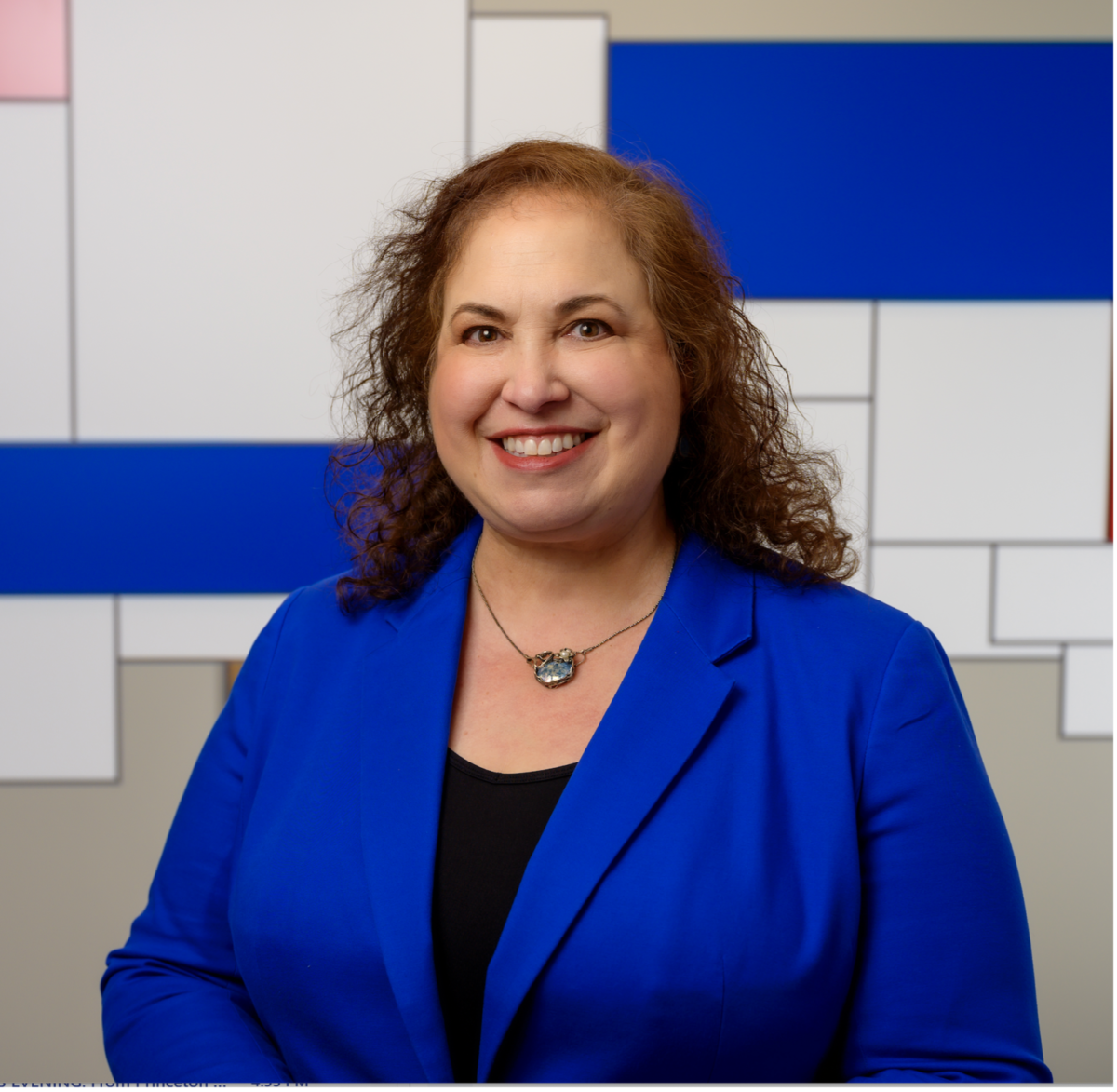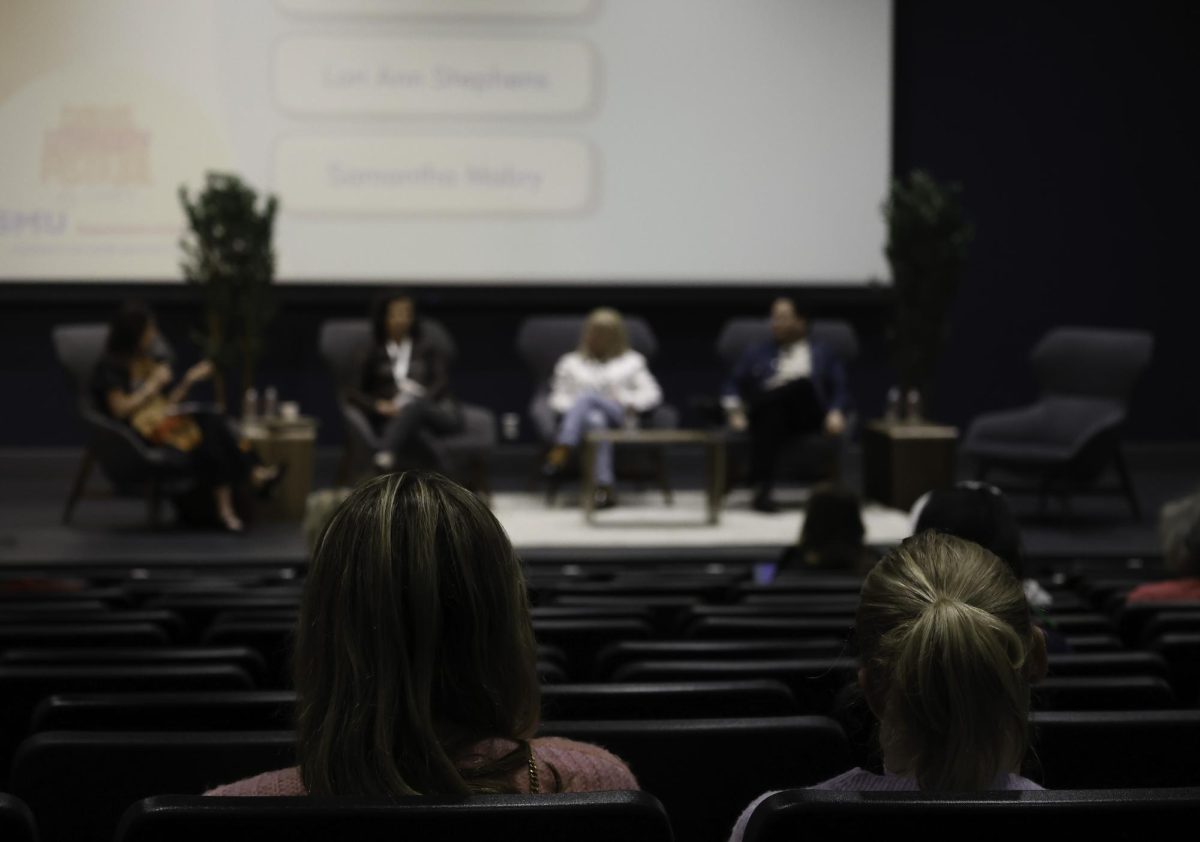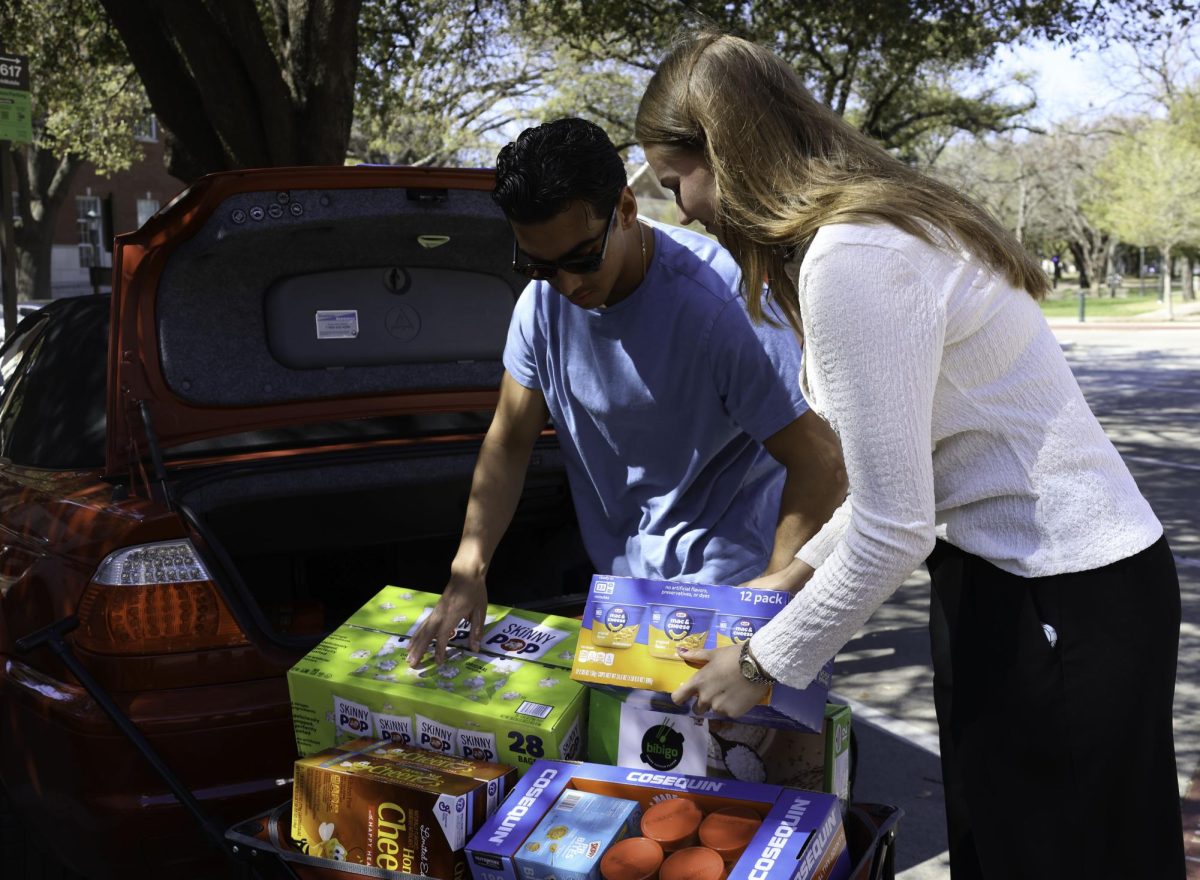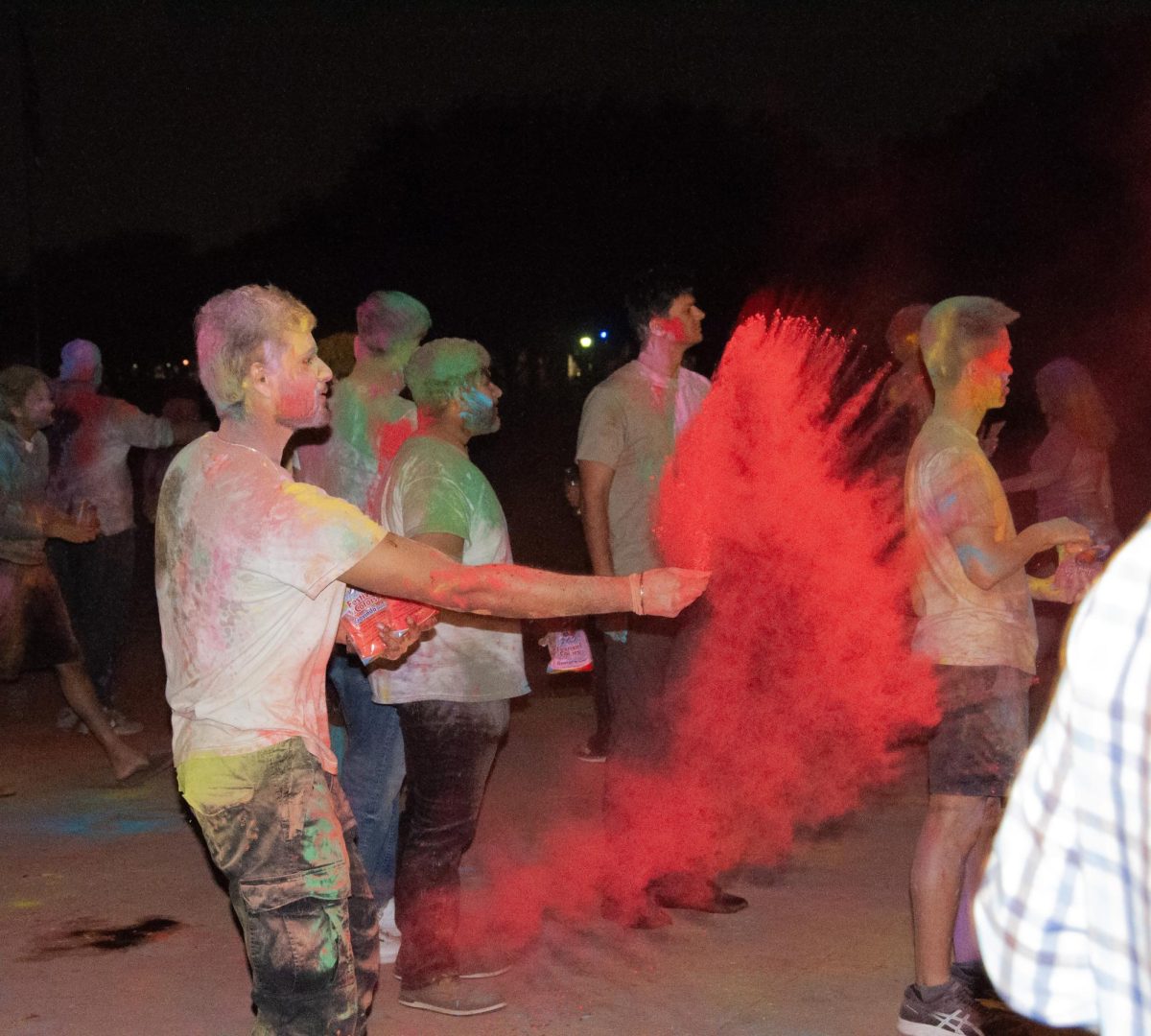“All Jews are responsible for each other.” This Jewish teaching from the Talmud is what inspired Rabbi Heidi Coretz to begin serving her Jewish community–including the one at Southern Methodist University.
Rabbi Heidi Coretz is the Assistant Chaplain for Jewish Life and the Director of Hillel at SMU, where she has worked for almost 20 years. The Florida native’s relationship with the Hillel program runs deep, as it brought her mother, father, sister and brother-in-law together.
“It was everything to me,” Coretz said. “It was where all my special times outside of class took place. That and going to football games.”
After Coretz moved to Dallas for her husband’s work, her job search began. She had previously worked as an assistant rabbi in Tulsa, Oklahoma, and ran her first solo congregation in Lubbock, Texas.
Being new in town and the mother of a young child, Coretz was looking for something different. Luckily, a mutual friend was able to notify her of a job opening to run Hillel at SMU and worked to get the funds needed for the position.
Now, almost 20 years later, she can confidently say the job was a perfect match. Coretz has turned a part-time job for an underfunded Hillel into a full-time job for a safe space where Jewish students can thrive on campus.
“We have two to four programs a week typically,” Cortez said. “This year I’ve reached about 232 different Jewish people and many more non-Jews come to our events…we’ve really been able to build the program out here after all these years.”
Antisemitism at SMU
With growing trends of antisemitism in the world, Hillel is more important than ever. Coretz says that she first realized antisemitism was on the rise in the United States during the Trump presidency when white-supremacist and neo-nazi participants chanted “Jews will not replace us” at the 2017 ‘Unite the Right’ rally in Charlottesville, Virginia. These acts of antisemitism occur everywhere, even at SMU.
“There is a lot of growing antisemitism on this campus,” says Coretz. “Our students here suffer a lot of antisemitism. Holocaust jokes…a lot of it is just straight-up, traditional antisemitism. You know, it’s very anecdotal, but I just hear so much more of it than I’ve ever heard in my 19 years. Every year it’s gotten so much worse. I don’t know where we go from here. It’s a troubling, troubling trend.”
Nathan Pupko Ginsberg, SMU junior and the current president of Hillel at SMU’s Student Board, is no stranger to this act of hate. A member of Greek life, Pupko Ginsberg says that there have been many instances where the line between a friendly joke and an antisemitic comment is blurred.
“I remember freshman year, actually, I was at this event and this guy randomly came up to the group I was talking to and said he fucking hates Jews,” Pupko Ginsberg shared.
Hillel at SMU Graduate Student Representative and SMU graduate student Rose Hurwitz has had similar experiences. Hurwitz says she has experienced “off-color jokes” and has received “hateful comments on social media” while at SMU, but it doesn’t stop there.
“Within the last year, on two separate occasions I was dining on restaurant patios when men entered the patio from off the street and publicly announced their intentions to finish what Hitler started and called on diners for support,” Hurwitz shared. “I have never been more scared to share a space with someone. These experiences have shown me that even seemingly insignificant comments should be taken seriously.”
Even Coretz herself has witnessed antisemitism on SMU’s campus recently. One occurrence was during a required student affairs meeting with over 100 people in attendance, where a speaker said something openly antisemitic.
“She started talking about a colleague of hers who is Jewish and was implying to this person of color that they had something in common over feeling afraid due to racism,” Coretz said about the meeting’s speaker. “This person said, ‘Girl, nobody knows you’re Jewish!’ It was so ignorant and so offensive to me and wrong.”
Coretz’s daughter attended a Jewish preschool in 2001 with an armed police officer present. Now 24 and a preschool teacher, her daughter taught at the Jewish Community Center until 2022, where there were multiple armed police officers present. Even synagogues have security present, Coretz says.
“People absolutely do know who we are, and in light of the fact the Holocaust was over 80 years ago, the fact that a diversity, equity, and inclusion speaker would act like the Jews have no reason to worry because nobody knows we’re Jewish was just astounding,” said Coretz. “Not one person stood up and said anything and that person got multiple applause.”
With these frightening experiences in mind, Coretz has worked extremely hard to ensure her students have positive experiences in Jewish communities to outweigh the painful ones. For Jewish students like Pupko Ginsberg, Coretz’ support can mean the world.
“She’s just been here to make us feel like, despite all of this, we’re still humans and we deserve all the rights and respect that everybody else has,” says Pupko Ginsberg. “We deserve the same treatment, and she’s here to kind of remind us of that.”
Becoming a Rabbi
Though all of her success makes it hard to believe, Rabbi Coretz never planned to become a rabbi. Raised fairly secular, Coretz didn’t have a strong relationship with Judaism until she went on the 8-week Alexander Muss High School in Israel program when she was 17.
Coretz began college in 1987, thinking she would end up with a degree in psychology and pursue counseling, or even a master’s in social work. After becoming active in Hillel at The University of Florida, switching to a Jewish studies major, joining “Reformed Jewish Gators,” and even leading worship on campus as an undergrad, it was clear she had the potential to be a strong leader in the Jewish community.
Through encouragement from the rabbi at her high school synagogue and the director of admissions at Hebrew Union College Jewish Institute of Religion in Cincinnati, Ohio, Coretz headed off to rabbinical school in 1990. With an interest in social justice, helping others, and academics, rabbinical school ended up being the perfect next step in Coretz’ journey.
“I wasn’t gonna move home with a Jewish studies degree and try to get a job, that seemed impossible,” said Coretz. “So then it was like, well, what would be the best thing based on both my passions, my talents, and where I was feeling that call to go, and that was to rabbinical school. And then luckily, I loved it.”
Coretz says she spent five years of school, one in Israel and four in Cincinnati, just waiting to “do the work.” As a student, Coretz served student pulpits in cities in Iowa, Indiana, and Ohio, where she was reassured she was on the right path.
“You would be this beatdown graduate student, but you’d show up and they would greet you with ‘Shabbat Shalom, rabbi,’ and you would do the work,” said Coretz. “The work was so meaningful and I just felt like I found the passion and the purpose and it all connected for me. I didn’t want to be a grad student for the rest of my life. I wanted to do the work.”
A home away from home
And done the work she has. SMU student Keilah Eletu says Hillel at SMU and Rabbi Coretz have “provided a home like no other” and makes the difficulties of dealing with antisemitism as a Jewish student on campus much easier. Pupko Ginsberg also speaks highly of Coretz and her work with Hillel.
“I think one of the best ways to describe what (Coretz) means to me is the way that she describes Hillel, which is your home away from home,” says Pupko Ginsberg. “Just knowing that she’s on campus and that she’s here to help us and do whatever she can for both the Jewish students and the Jewish life and community at SMU has been amazing.”
From her personal experiences with Hillel to stories of antisemitic instances she’s heard from her students, Coretz is deeply passionate about continuing to establish and grow Hillel at SMU.
“I feel this great responsibility to inspire this generation and give my students deep, rich, Jewish friendships and memories, celebrations, but also to be there for them as their Rabbi,” says Coretz. “When they’re in need, when they’re feeling lonely, when they’re feeling stressed, to walk with them through any problems that they face while they’re here.”





















